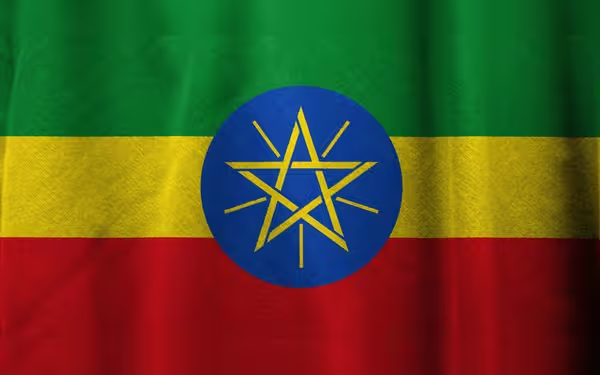Saturday, November 16, 2024 07:26 PM
Ethiopia Ratifies Nile River Agreement Despite Opposition
- Ethiopia ratifies Cooperative Framework Agreement for Nile management.
- Egypt and Sudan reject the CFA, citing incomplete representation.
- Ethiopian PM calls CFA a historic milestone for cooperation.
 Image Credits: menafn
Image Credits: menafnEthiopia ratifies the Nile River agreement, facing opposition from Egypt and Sudan, marking a significant step in regional water management.
The Nile River, one of the longest rivers in the world, flows through several countries in northeastern Africa, providing essential water resources for millions of people. Recently, Ethiopia has taken a significant step by ratifying the Cooperative Framework Agreement (CFA), a pact aimed at managing and developing the water resources of the Nile Basin. This decision comes despite strong opposition from neighboring countries, particularly Egypt and Sudan, who have expressed concerns over the agreement's implications for their own water rights.
The CFA, also known as the Entebbe Agreement, was initially signed in 2010 by several countries, including Uganda, Ethiopia, Rwanda, Tanzania, Kenya, and Burundi. South Sudan joined the agreement in 2012. However, the ratification process faced delays as parliaments in at least six of these nations took time to approve the deal. With South Sudan's parliament finally giving its approval in July, Ethiopia submitted the agreement to the African Union in August, allowing it to take effect 60 days after South Sudan's accession.
In a recent statement, Ethiopian Prime Minister Abiy Ahmed hailed the entry into force of the CFA as a “historic milestone.” He emphasized that this agreement represents a significant step towards fostering genuine cooperation among the Nile Basin countries. Furthermore, he extended an invitation to non-signatory states to join the initiative, highlighting the importance of collective goals related to development and regional integration.
However, the response from Egypt and Sudan has been far from supportive. Both countries issued a joint statement rejecting the CFA, describing it as an “incomplete” document that does not adequately represent the interests of all Nile Basin nations. They urged all parties involved to refrain from unilateral actions that could exacerbate tensions and divisions among the countries.
This situation underscores the complexities surrounding Nile Basin politics, where issues of water rights and resource management have historically been contentious. As Ethiopia moves forward with the CFA, the reactions from Egypt and Sudan will play a crucial role in shaping future discussions regarding Nile water management and regional cooperation.
The ratification of the CFA by Ethiopia marks a pivotal moment in the ongoing dialogue about the Nile River's resources. While it opens the door for potential collaboration among upstream nations, it also raises significant questions about the future of water rights and regional stability. As the situation unfolds, it will be essential for all parties to engage in constructive dialogue to ensure that the needs and rights of all nations sharing the Nile are respected and addressed.













